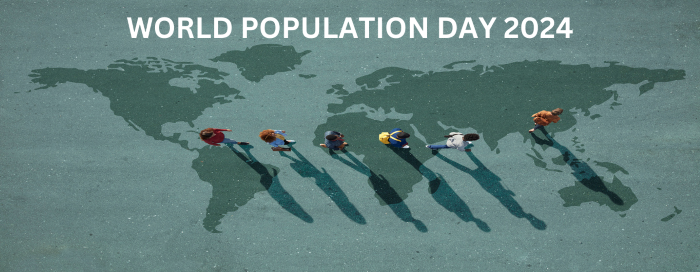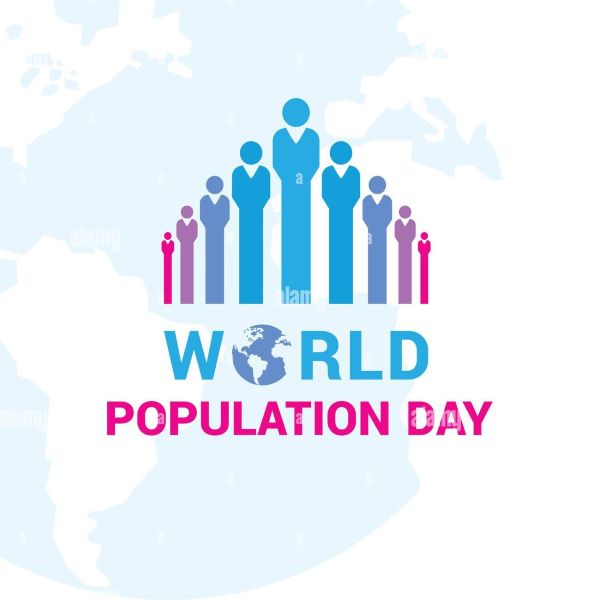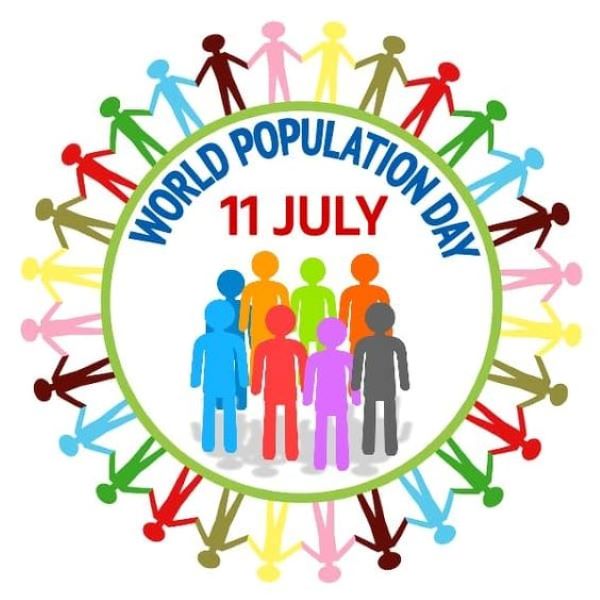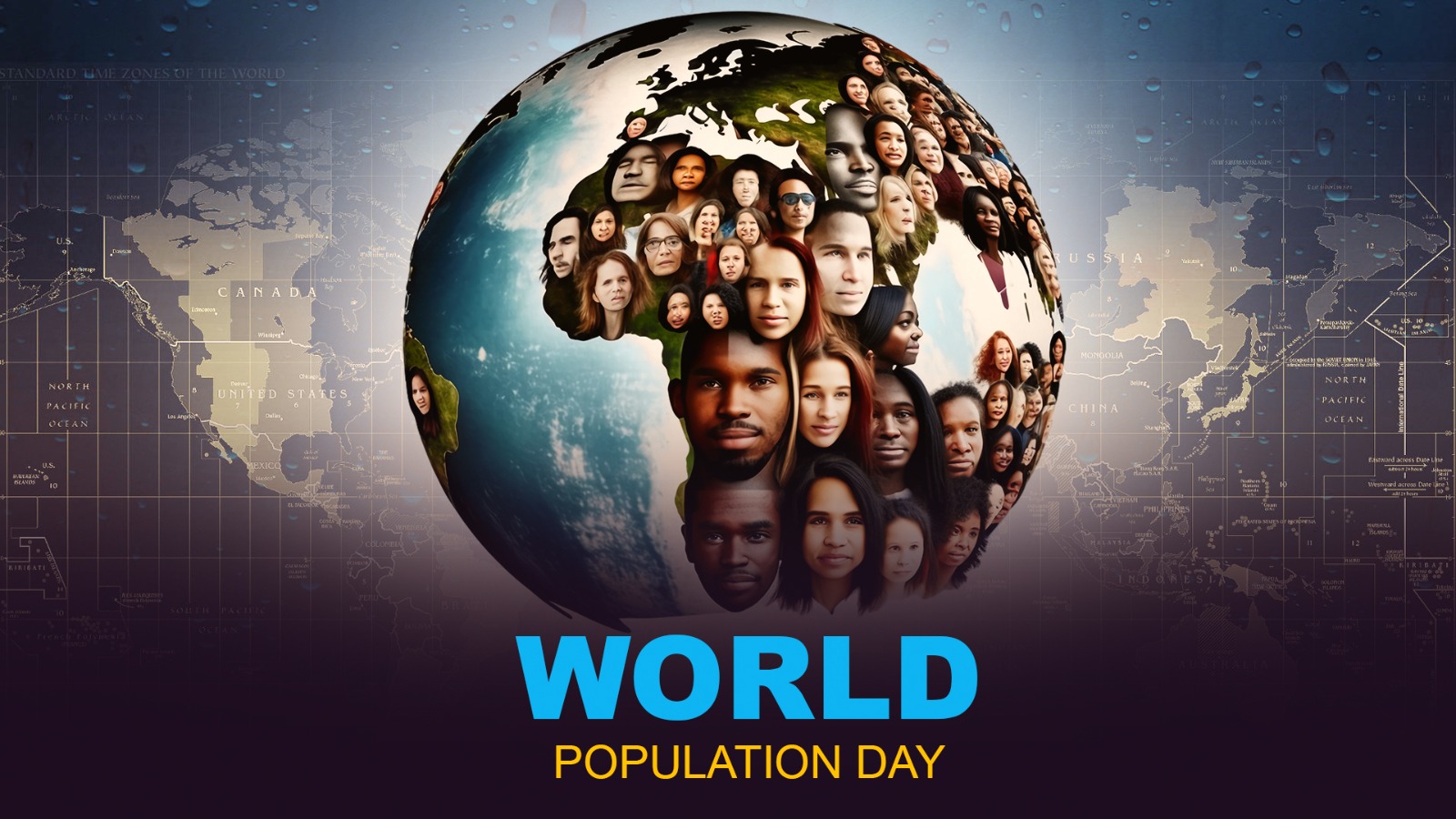World Population Day 2024: Date, History, Theme and Significance
World Population Day: The world population is growing steadily and rapidly, creating significant concerns for our planet. Overpopulation causes numerous population-related problems that impact the environment and human life. As the global population grows, exploring sustainable alternatives and understanding the profound impacts of overpopulation become important. World Population Day, observed annually, aims to create awareness about these impacts and promote sustainable alternatives to reduce adverse effects.

History of World Population Day
World Population Day began on July 11, 1987, when the global population reached the milestone of five billion people. This incident inspired Dr. K.C. Zakaria, a senior demographer at the World Bank, to propose the idea of observing July 11 every year as World Population Day.
His suggestion gained momentum, and by 1989, the United Nations had officially established the day. Since then, World Population Day has been observed annually to raise awareness of the impacts of the increasing global population and to advocate for sustainable development.
Significance of World Population Day
World Population Day holds significant significance as it highlights the impact of population growth on socio-economic development, environmental sustainability, and individual well-being. The day reminds us of the challenges posed by the increasing population and the need for collective action to address these issues. World Population Day aims to create a balance between population growth and the planet’s resources by raising awareness and encouraging sustainable choices.
The growing global population presents both opportunities and challenges. On the one hand, a larger population can promote economic growth and innovation. On the other hand, it can put pressure on resources, increase environmental degradation, and create socio-economic inequalities. Understanding these impacts is important to developing effective policies and strategies to ensure a sustainable future for all.
The theme of World Population Day 2024
The theme of World Population Day 2024 is “Leave no one behind, count everyone.” This theme emphasizes the importance of inclusivity and equity in addressing population issues. This underlines the need to consider the diverse needs and perspectives of all individuals, ensuring that no one is left behind in the pursuit of sustainable development.
By counting everyone and acknowledging their unique contributions and challenges, we can create a more just and equitable world.
Understanding Overpopulation and Its Effects:

Overpopulation refers to a situation where the number of people exceeds the capacity of the environment to sustain them. This can lead to many negative consequences, including:
1. Environmental degradation: Overpopulation puts immense pressure on natural resources, leading to deforestation, loss of biodiversity, and pollution. Increasing demand for food, water, and energy is resulting in the depletion of these vital resources, compromising the health of ecosystems and contributing to climate change.
2. Scarcity of resources: As population increases, competition for limited resources intensifies. This may result in shortages of essential goods and services, such as clean water, arable land, and energy. Resource depletion can lead to conflict, migration, and social unrest, further exacerbating the challenges facing communities.
3. Socio-economic challenges: Overpopulation can put pressure on infrastructure and public services, such as health care, education, and housing. This can lead to overcrowding in cities, inadequate health facilities, and limited access to quality education. Socio-economic inequalities may increase, causing greater harm to vulnerable populations.
4. Public health issues: A growing population can contribute to the spread of infectious diseases, increased pollution, and decreased access to health care. Overcrowded living conditions, poor sanitation, and limited healthcare resources can become breeding grounds for diseases and exacerbate public health crises.
Promoting sustainable choices:

It is necessary to promote sustainable options and practices to deal with the challenges of overpopulation. This also includes:
1. Family planning and education: Access to family planning services and education is important to empower individuals to make informed decisions about their reproductive health. Promoting gender equality and providing comprehensive sex education can help reduce unintended pregnancies and support sustainable population growth.
2. Sustainable resource management: It is important to implement sustainable practices in agriculture, energy production, and water management to conserve natural resources. This includes promoting renewable energy sources, adopting efficient irrigation techniques, and reducing waste through recycling and conservation efforts.
3. Investing in health and education: Ensuring access to quality health care and education for all individuals is essential to building resilient communities. Investments in health care infrastructure, vaccination programs, and educational initiatives can improve public health outcomes and enhance socio-economic development.
4. Environmental protection: The protection and restoration of ecosystems are important for maintaining biodiversity and ensuring the health of our planet. This includes preserving natural habitats, reducing deforestation, and implementing conservation measures to protect endangered species.
As we celebrate World Population Day 2024, it is important to consider the impact of population growth on our world and take active steps to address the challenges. By promoting sustainable alternatives, raising awareness, and advocating for inclusive growth, we can create a more sustainable and equitable future for all. Let’s remember that every person matters, and our collective actions can make a significant difference in shaping the world we live in.

